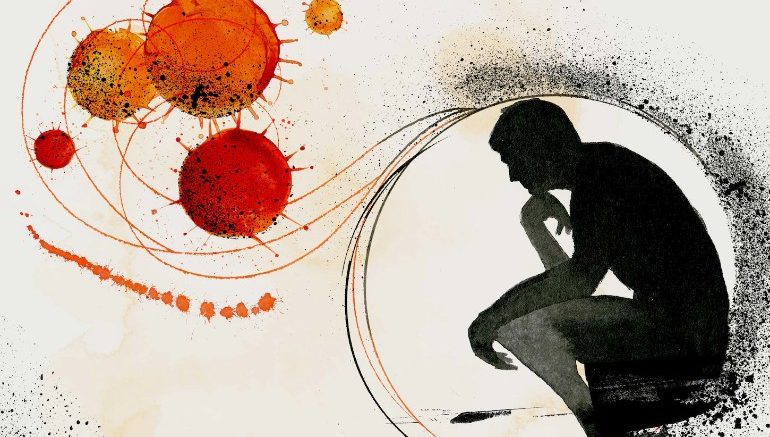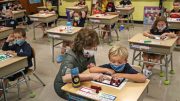Last week, I asked readers to contribute practices, habits, or attitudes that they’d like to take with them in the years ahead that they’d picked up during the pandemic.
The response was overwhelming, with tale after tale of goodness and beauty revealed throughout these trying years. Reading that brought tears to my eyes. “People are great,” I texted my spouse.
Political failure, dissatisfaction, unfairness, injustice, and the grief of death and mourning have characterized the last few years. These stories, on the other hand, remind me that this time has also nurtured and confirmed the resilience of beauty and love, albeit in modest ways.
People talked about learning to slow down and reconnect with God, themselves, and others by running, exercising, cooking, baking, learning languages and musical instruments, feeding the homeless, practicing karate, gardening, and building friendships. I only regret that I won’t be able to convey all of the testimonials of endurance and delight.
Many readers identified with my new hiking habit and expressed their gratitude for the benefits of walking or trekking.
Some claimed to have driven hundreds of kilometres. Others mentioned urban treks as a way to discover new neighborhoods and parts of their city. For length and clarity, some of the replies below have been modified and condensed.
Karen Doebler, an I.C.U. nurse from Indiana, talked about how walking the dog was an activity she and her husband could do together even as they tried to keep their distance at home to protect him from any COVID exposures.
“We normally went for a mile or so on foot and then returned home.” We’d catch up and talk about what we’d been up to lately, as well as our goals for the days ahead. She added, “It was a daily relationship.”
“It was something I looked forward to every day, a ray of sunshine in the midst of all the anxiety and uncertainty.”
“Now that the hazards are lower, we aren’t as concerned about me carrying COVID-19 home, and my husband has returned to work.” We still go for afternoon walks, and I still think they’re one of the most enjoyable parts of the day.
All of my plans revolve around that. I consider it a gift from COVID, and I’m delighted that something positive came out of that period. “
“I would go on a lengthy twilight walk with the dog shortly before going to sleep, and together we would watch the fireflies,” Dan Styer of Ohio wrote.
“We saw bats and heard deer,” says the narrator. We were able to see the moon, stars, and the Milky Way. We once witnessed a meteor.
We got a whiff of summer’s sweetness. Our walks became longer and longer, sometimes exceeding a mile, with only a sliver of natural light to guide us. My senses of hearing, smelling, and touching became more acute. (I’m sorry, but I can’t speak for the dog.) I thought of Robert Frost. “I have been acquainted with the night.”
“I saw glow worms for the first time in my life. We traveled through the dark as the foliage changed color and then dropped, through gloomy snowstorms and severe cold, and under Orion’s dazzling stars. “
Discussion of Opinions How will work and daily life be affected by the pandemic?
- Is the answer to a fuller life working less?
Jonathan Malesic argues that your job, or lack of one, doesn’t define your human worth. - What do we lose when we lose the office?
William D. Cohan, a former investment banker, wonders how the next generation will learn and grow professionally. - How can we reduce unnecessary meetings?
Priya Parker explores why structuring our time is more complicated than ever. - You’ll probably have fewer friends after the pandemic. Is that normal?
Kate Murphy, the author of “You’re Not Listening,” asks whether your kid’s soccer teammate’s parents were really the friends you needed.
Many others rekindled their passion for reading.
“I revived my longstanding habit of reading throughout COVID,” wrote Brad Robertson of Portland, Ore. Since March 2020, instead of checking email first thing in the morning, I have spent at least 30 minutes reading. Occasionally, even more.
I’ve been doing this practically every day for the past two years, even while work resumes on a more regular schedule. That adds up to roughly 160 novels and counting, without feeling like it’s been a great effort. “
Heather Wishik of Vermont noted that despite being completely vaccinated, she must continue to isolate since she is immunocompromised. She and her husband have taken up the habit of reading aloud together.
She stated, “I do the research to choose a book I think we’ll enjoy, then she reads to me—a chapter or two or three depending on how lengthy they are.”
As children, being read to was a thrill for everyone of us, and now as adults, we’re recapturing that magic by discovering authors we’ve never heard of or books by authors we enjoy. We’ve read both fiction and nonfiction, as well as humorous and serious works.
“Watergate: A New History,” by Garrett M. Graff, is our current read, and “Aunt Julia and the Scriptwriter,” by Mario Vargas Llosa, is the most recent fiction we’ve read. “
Some of my favorite replies were about traditions that have helped families, friends, and neighbors become closer. Debbie Kaminer of New York wrote that she and her family created “the dull game” as a contest. (She claims it’s a lot more fun than it appears!)
She explained, “Each participant has 60 seconds to tell any boring narrative they choose.” “Everyone in our five-person family gets a turn as we move around in a circle.” Then we all vote on which story is the most dull. The winner is entitled to bragging rights.
The game is so popular that now that my kids are (finally) back at college after the pandemic shut down schools, they FaceTime us to play.
May Wong of Bethlehem, Pennsylvania, reported that she and her two kids began a “drive to nowhere” ritual: “We just got in the car and drove.” We didn’t know where we were going. We’d take turns speaking.
In the solitude of our minivan, we could talk about anything. During these drives, we actually bonded: mother-daughter bonding as well as sister-sister bonding.
“Now that life has returned to “normal,” we attempt to keep our Sunday trips to nowhere going. It took a global pandemic to teach us the importance of making time to chat and listen to one another. “
“This practice has turned our group of townhomes into a community,” commented Judith Scavone of California, who said she and her neighbors created a Friday afternoon happy hour and want to keep it going.
We are a group of people ranging in age from 89 to one year old. We have evolved into a caring society of liberals and conservatives, Christians, Hindus, atheists, and Buddhists. “
Thank you for sharing so many of the habits that have kept you going over the last few years. May they serve you well for many years to come!





